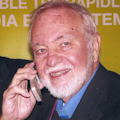The Wall Street Journal has a Sunday feature in some local newspapers called “10 Things _____ Won’t Tell You. It does a good job of revealing the real nature of some groups, organizations and industries. I have created a modified version here about the Federal Communications Commission with thanks to the WSJ for the idea.
1. We are a political organization. The FCC was commissioned by the Congress in 1934 to regulate all communications including telephone, telegraph, radio and TV broadcasting, cable and other broadband services, and all wireless services including satellite. The goal is to manage the spectrum as well as police industry to prevent monopolies and bring fairness and benefits to the people. However, the decision-makers are five commissioners who are political appointees selected by the president and approved by Congress. Today there are three Democrats and two Republicans. Guess how the decisions are made. Yes, along party lines with Democrats currently being in control.
2. Our job is to regulate, whether we need it or not. The job of a government agency is to regulate, of course. But just because you can does not mean that you should. Some situations crop up in which case the FCC can step in and create regulations that are both fair and positive to competition within the industry. Yet, the temptation to do more is there if the power exists. The EPA is a great example of an agency that regulates because it can to promote a particular political agenda. The FCC is not that bad but its repeated attempts to regulate the Internet may be an example of over the top regulation.
3. We like to pick winners and losers. While the FCC supports competition, it likes to choose which organizations win and which lose. This process is usually politically motivated in the name of fairness, but has the effect of hurting some businesses at the expense of others presumably to provide some benefit to the public which is always debatable. Endless law suits typically result. The outcome is that the marketplace does not get to decide and a rash of unintended consequences occur. For instance, it is anyone’s guess what the net neutrality decision will produce.
4. We are not the only game in town. One of main jobs of the FCC is spectrum management. With so many wireless services in play and perpetual technological advances, it is a mammoth job to juggle the spectrum assignments much less police them. Lately the FCC uses this power to generate a big cash income by auctioning off key parts of the spectrum to the highest bidders. For the most part the bidders are the big cell phone companies who seemingly never have enough good spectrum. Billions have already been generated with more to come in 2016 at the expense of the TV broadcast industry. Yet the FCC is not the only one involved with spectrum. The Department of Commerce’s (DoC) National Telecommunications and Information Administration (NTIA) manages the spectrum used by the government and military.
The NTIA is also the President’s main advisor on telecommunications issues like broadband. The agency is less regulatory and more focused on fairness and technological advancements and support. The NTIA also oversee the Internet Corporation for Assigned Names and Numbers (ICANN), the non-profit organization responsible for Internet management and coordination. The ICANN’s contract with the DoC expires in September of 2015 when it has been rumored that ICANN will then come under a multinational management organization (The ITU?). Can that be a good thing?
5. You need us. That is the FCC’s unheard refrain. And yes, it is true. We do need them. The communications business is huge and complex and at times does need management and regulation. The spectrum is a major challenge that needs continuous monitoring and adjustments due to technological, economic and social changes. The FCC generally does a good job. What the public really wants and needs is a light-handed regulatory approach that fixes problems, lets the marketplace work, and provides the best benefits. It does not need regulation where none is needed and it certainly should not be used as a tool to promote a hard line political agenda. Is that even possible in today’s highly politicized environment?
About the Author

Lou Frenzel Blog
Communications Technology
Click here to find more of Lou's articles on Electronic Design.

